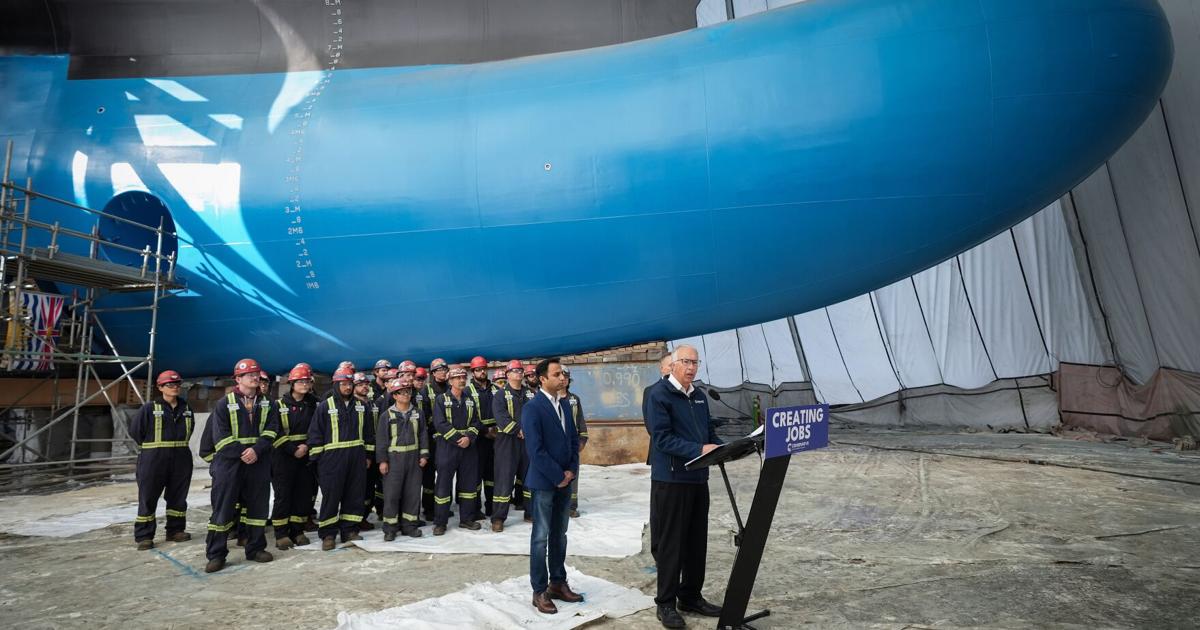TORONTO – When the Toronto International Film Festival started in the mid-1970s, its purpose was to bring the best international films to Canadian audiences, programmer Robyn Citizen said in a recent video call.
But as the years went by and the event once called the “Festival of Festivals” grew in both scope and influence, it started to have the opposite effect.
“We’re in a really great position to spotlight and platform all of the brilliant filmmakers and artists who come from Canada,” Citizen said. “But we’re not just exposing them to a local audience, we’re exposing them to an international industry and audience.”
TIFF’s Canadian lineup features veteran filmmakers and new faces alike. Here are some of the homegrown titles hitting the festival’s 50th edition.
“100 SUNSET”
Toronto’s Tibetan-Canadian community gets its close-up in Kunsang Kyirong’s debut feature — quite literally, through the grainy lens of the protagonist’s hand-held camcorder. Tenzin Kunsel stars as Kunsel, a shy voyeur prone to petty theft, who befriends Sonam Choekyi’s Passang, a newcomer trapped in a marriage to an older man. Together, they search for ways to break free from the roles life has assigned them.
Kyirong, a Vancouver native, says she was inspired by the Toronto neighbourhood of Parkdale, home to the largest Tibetan community in North America.
“I wanted to show the aspirations that a community can have in a new country, through the story of two young women. Hopefully, we’re able to see this larger community in the film being portrayed,” she says.
“100 Sunset” highlights how the Tibetan-Canadian community pools resources and supports one another through informal lending — a spirit of collaboration that also fuelled the making of the film itself. -Alex Nino Gheciu
“100 Sunset” screens on Sept. 6 and 7
“BLOOD LINES”
Director Gail Maurice returns to TIFF with her second feature, a love letter to Métis culture. She wanted the film to represent facets of herself, she said: her queerness, her Métis identity — which she said many people, even those born in Canada, don’t understand — and her northern Saskatchewan community.
In the film, a store clerk and storyteller is feeling pressure to mend her relationship with her mom when she meets a woman who’s come looking for her biological family.
The lesbian love story is partially in Michif, a language spoken by just over 1,000 people, which severely affected the casting pool.
“I had to go to my village in the north to do a casting call because I wanted it to be authentic speakers. Otherwise, if somebody just memorizes how to say things, it doesn’t mean anything and the emotion doesn’t come out in the words, right?” -Nicole Thompson
“Blood Lines” screens Sept. 8 and 10.
“NIKA & MADISON”
Eva Thomas is a TIFF success story. She participated in the festival’s Filmmaker Lab in 2023 and debuted her short film “Redlights” that same year.
Now she’s back with a feature film that expands on the short. “Nika & Madison” hinges on the real-life practice of systemic racism colloquially known as “starlight tours,” in which police officers picked up Indigenous people and drove them to the middle of nowhere, often at night and in the freezing cold, leaving them to make their own way back.
Thomas said the film takes “Thelma and Louise” “back to the rez.”
“It’s a sort of crime drama mystery — and it’s a very strongly female-dominated film,” she said.
At the film’s heart is the friendship between the title characters, which is not at its strongest when the story begins. -NT
“Nika & Madison” screens on Sept. 7 and 8.
“THERE ARE NO WORDS”
Min Sook Lee says says it took more than 25 years of documentary filmmaking — with works such as 2005’s “Hogtown” and 2016’s “Migrant Dreams” behind her — to find the courage to tell her most personal story. More than 40 years ago, her mother died by suicide. In this film, Lee retraces her past, revisiting the people and places of her own childhood in Toronto and in her birthplace of Hwasun, South Korea, as she tries to make sense of what happened.
“After my mother died, there were no stories. We didn’t talk about her life or what happened. I’ve used this film to try and understand who she was and the conditions of her life,” says Lee.
While determined to unravel the mystery of her mother’s death, she also wanted to honour her journey as a working-class Korean immigrant. -ANG
“There Are No Words” screens Sept. 9 and 11.
“WHILE THE GREEN GRASS GROWS: A DIARY IN SEVEN PARTS”
Peter Mettler’s sprawling seven-hour opus in some ways defies categorization. Is it a documentary film? A series?
“The entire concept, I suppose, is that it’s a diary,” he said on a recent video call. “And that’s the guiding principle. I would say that I was letting life write the script. Life was leading the way.”
Filmed over the course of three years, the 420 minutes are arranged roughly chronologically. But each of the seven parts, which vary in length from half an hour to an hour and a half, is distinct.
From a trip to Killarney Provincial Park to a Cuban film school, each part is a diary entry all its own. Some feature psychedelic imagery, while others more closely resemble cinema verité, he said.
“The character of it is that it’s a cinematic diary, because it really does take departures into almost hallucinogenic episodes that are flights of fancy and imagination and impressionistic,” he said. “And then you’re back talking to somebody for 10 minutes about an idea. So the cinematic part is quite important.”
Those who want to take in the project at TIFF have to purchase two separate tickets: one for the first block of four parts and another for the remaining three. But fear not, Mettler says — both tickets come for the price of one. -NT
“While The Green Grass Grows: A Diary in Seven Parts” screens Sept. 7 and 8.
This report by The Canadian Press was first published Sept. 1, 2025.



